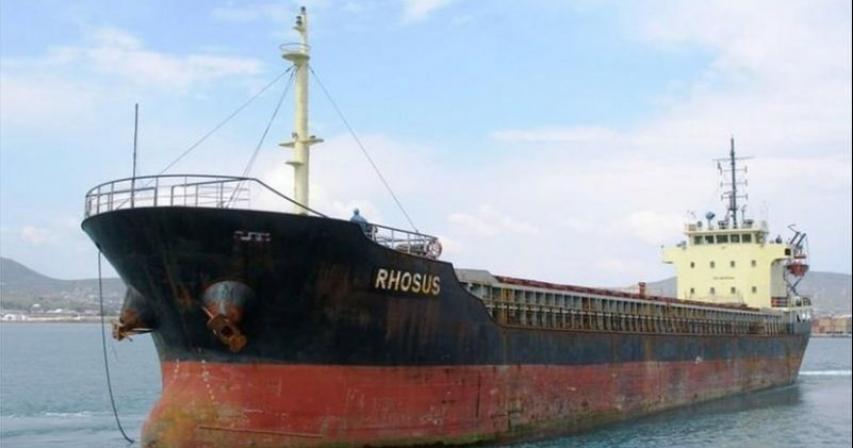Lebanon has requested the arrest of the foreign owner and captain of the ship which brought material which blew up at Beirut port causing devastation.
The judge leading the probe into the blast asked international police organisation Interpol to detain the two men, without publicly identifying them.
Some 190 people were killed when the improperly stored ammonium nitrate cargo exploded on 4 August.
The blast left 6,000 others injured and inflicted huge amounts of damage.
The captain of the ship, the MV Rhosus, has previously been named as a Russian national, and its owner a Russian national based in Cyprus.
The MV Rhosus had docked in Beirut in 2013 after suffering technical problems while sailing from Georgia to Mozambique.
Some 2,700 tonnes of ammonium nitrate were offloaded the following year and stored in unsafe conditions in a warehouse at the port, where it eventually exploded with catastrophic effect.
The ship itself, which was in poor condition, sank at the port in February 2018.
On Thursday, the Lebanese judge leading the investigation into the disaster, Fadi Sawan, "issued two absentee arrest warrants for the owner of the Rhosus... as well as the ship's captain," an unnamed judicial source told AFP news agency.
According to the source, an investigating team questioned the ship's owner in Cyprus last month.
So far, at least 20 people have been arrested in connection with the case.
The explosion has caused outrage in Lebanon, with blame being directed not only at those in charge of the ship, but also the Lebanese authorities for failing to prevent it from happening.
The blast led to the resignation of the government, and efforts to form a new government have so far been unsuccessful.
The disaster came at a time when Lebanon was already suffering multiple crises with the collapse of its currency, the effects of the coronavirus pandemic and months of demonstrations calling for an overhaul of the country's political system.
Alongside the human toll, the explosion caused as much as $4.6bn (£3.4bn) in damage to buildings and infrastructure, according to the World Bank, and Lebanon has appealed for international help to recover.

Comments